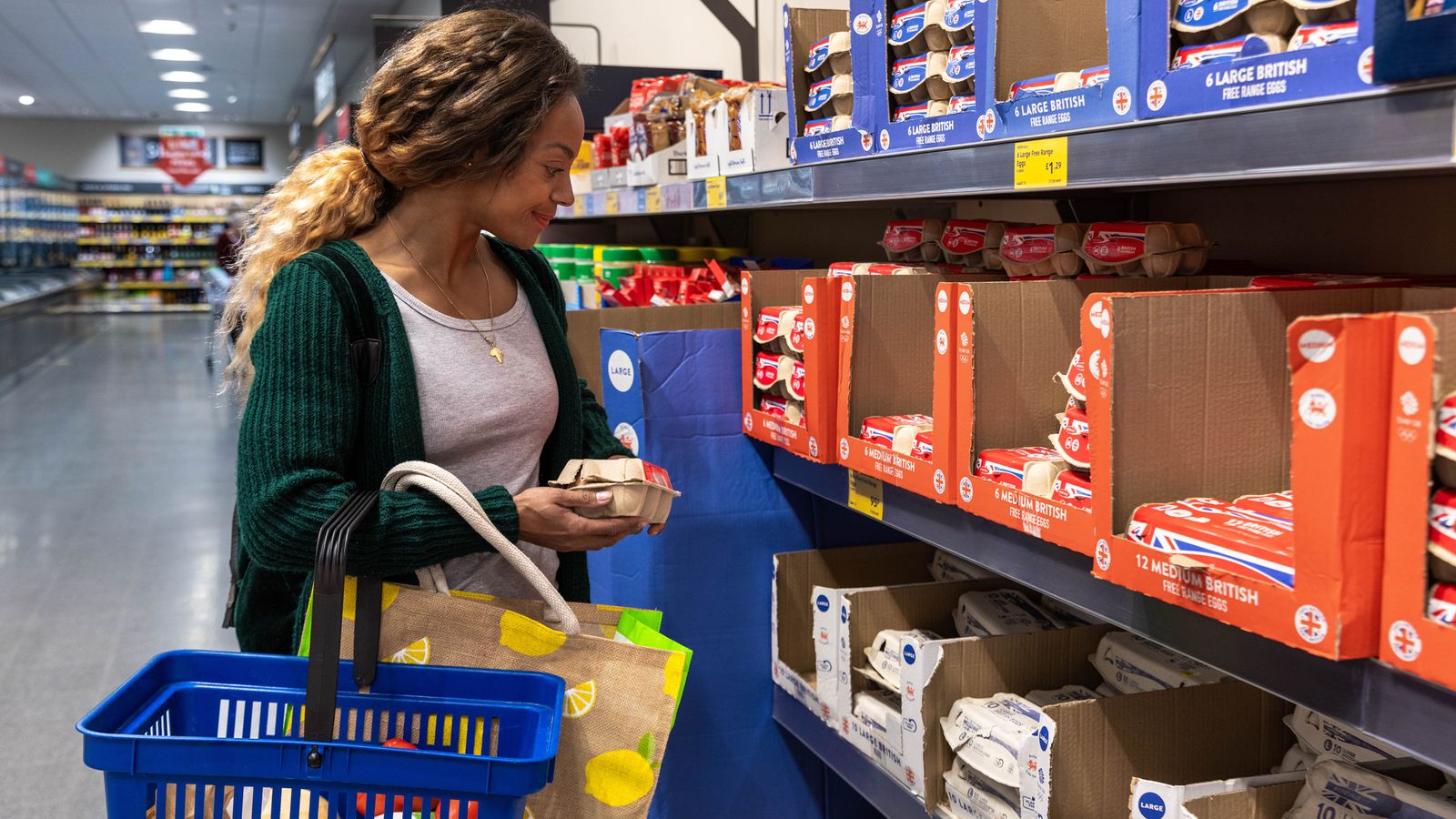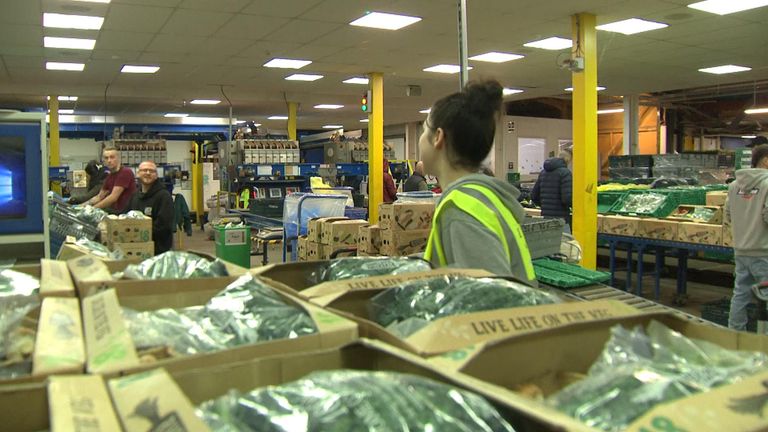Imported foods may be labelled when they do not meet welfare standards, as the government considers measures to help shoppers “buy British”.
Environment Secretary Steve Barclay is set to announce plans to change labelling on goods to clarify if it is produced to the highest standards, as part of sweeping reform to support farmers.
Mr Barclay will also speak with major online retailers about ways of helping customers understand where their food comes from, including the option of a “buy British button” on supermarket websites.
He will say at the Oxford Farming Conference on Thursday: “British farmers take pride in producing food that meets, and often exceeds, our world-leading animal welfare and environmental standards.
“British consumers want to buy this top-quality food, but too often products produced to lower standards overseas aren’t clearly labelled to differentiate them.
“This is why I am proud to announce that we will consult on clearer food labelling so we can tackle the unfairness created by misleading labelling and protect farmers and consumers.”
Read more from Sky News:
Starmer to launch election campaign with vow to change the ‘character of politics’
Backlog of old asylum cases nearly cleared but new ones racking up
Mr Barclay is also set announce new support schemes for farmers, including paying them to maintain and upgrade footpaths, cycle paths and bridleways on their land as part of a push to get Britons outdoors.
They will also continue to receive support for items such as maps, way markers and fencing to mark out access, the government said.
Richard Benwell, CEO of Wildlife and Countryside Link, said: “Reforms to enable consumers to reward farmers who stick to high animal welfare standards make sense for everyone.
“With over 200 million farmed animals in the UK, this policy is a win for farmers and for the public.
“By labelling animal food products to present information about the welfare of the animals involved, consumers can reward high welfare farmers.
“After a two-year delay to the progression of these popular and cost-effective changes, we now need to see swift progress to allow consumer choice to drive widespread improvements in the welfare of farmed animals.”

